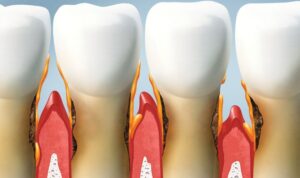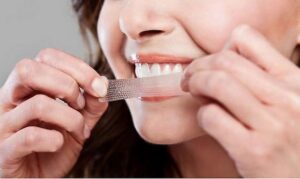It has been a trend to pursue a pearl-like white smile. It is a common desire, but for those of us with sensitive teeth, the journey can be fraught with discomfort. Traditional whitening treatments can leave your teeth feeling zingy and tender, making you question if the brighter smile is worth the temporary pain.
There is a solution that lets you have your cake and eat it too (or should we say, coffee and whiten them too?). Teeth whitening strips for sensitive teeth offer a gentler approach to achieving that radiant smile you are looking for..
How Do Teeth Whitening Strips Work?
Teeth whitening strips are thin, flexible adhesives coated with a whitening agent, typically hydrogen peroxide or carbamide peroxide. When applied to your teeth, the peroxide breaks down stain molecules, leaving your pearly whites looking brighter.
Why Choose Strips for Sensitive Teeth?
Regular whitening strips can sometimes trigger sensitivity because the peroxide can irritate the dentin, the layer beneath your tooth enamel. Teeth whitening strips for sensitive teeth address this issue in a few ways:
- Lower Peroxide Concentration: These strips contain a milder concentration of peroxide compared to their regular counterparts. This reduces the risk of irritation while still achieving noticeable whitening results.
- Desensitizing Ingredients: Some sensitive strip formulas include ingredients like potassium nitrate or stannous fluoride. These ingredients help block the tiny channels in your teeth that transmit pain signals, offering a soothing effect.
- Gentle Adhesion: Sensitive strips often have a softer adhesive that conforms better to your teeth, minimizing gum irritation.
Are Teeth Whitening Strips for Sensitive Teeth Effective?
The good news is that yes, teeth whitening strips for sensitive teeth can be effective. While they might take a little longer to achieve the same results as regular strips (think weeks instead of days), they will still whiten your smile without the discomfort.
Here is what to expect when using teeth whitening strips for sensitive teeth:
- Start Slow: Begin by using the strips for shorter durations than recommended, gradually increasing the time as your teeth adjust.
- Listen to Your Teeth: If you experience any significant discomfort, stop using the strips and consult your dentist.
- Patience is Key: Whitening takes time, so be patient and consistent with your routine.
Tips for Using Teeth Whitening Strips for Sensitive Teeth:
- Brush with Sensitivity Toothpaste: Before applying the strips, brush your teeth with a toothpaste formulated for sensitive teeth.
- Apply After Brushing: Wait at least 30 minutes after brushing to apply the strips, as brushing can temporarily open up the pores in your teeth, increasing sensitivity.
- Use a Desensitizing Rinse: Consider using a desensitizing mouthwash before or after using the strips to further reduce discomfort.
- Stay Hydrated: Drinking plenty of water helps prevent dehydration, which can worsen tooth sensitivity.
- Avoid Staining Foods: While using the strips, limit your intake of coffee, tea, red wine, and other stain-causing foods and beverages.
How a Dentist can Help?
If you are unsure whether teeth whitening strips for sensitive teeth are right for you, a visit to your dentist for teeth whitening in St. Petersburg is a great first step. They can assess your teeth’s health, discuss your sensitivity concerns, and recommend the whitening method best suited for you. They might also offer in-office whitening treatments that can provide faster results.
With a little patience and the right approach, teeth whitening strips for sensitive teeth can help you achieve a brighter, more confident smile. Remember, consistency is key, and listening to your teeth is essential. So go forth, embrace the gentleness of these strips, and get ready to smile out loud with your pearly whites.






